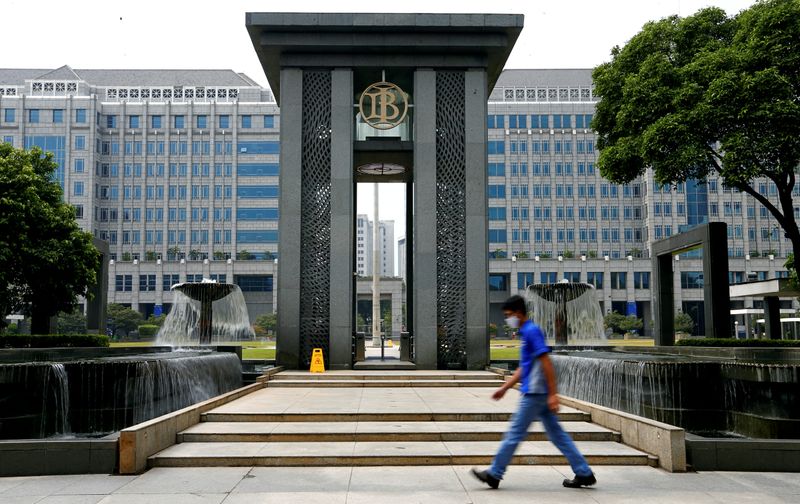By Tabita Diela and Gayatri Suroyo
JAKARTA (Reuters) - Indonesia's parliament will consider recommendations to overhaul how the country's central bank operates, raising market fears that Bank Indonesia will lose independence and its policymaking would be at risk from political interference.
WHAT IS BEING PROPOSED?
A panel of internal experts issued recommendations this week to revise the 1999 central bank act to parliament's legislation committee, known as Baleg.
Recommendations include expanding Bank Indonesia's (BI) mandate to cover economic growth and employment, on top of managing the value of the rupiah.
The panel has also recommended that cabinet ministers be given voting rights at monthly monetary policy reviews.
It also suggested the formation of a Monetary Council to supervise BI. The finance minister and a minister in the economics sector would have seats on the supervisory council. A similar arrangement was in place before the Asian financial crisis in the late 1990s.
BI could also be permitted to purchase government bonds in the primary market, zero-interest bonds under certain conditions or provide temporary financing for the government. The central bank has only recently resorted to some of these purchases, in response to the pandemic.
Currently, BI has a six-member board of governors, who are recommended by the president and elected by parliament. They can come from any background, but five existing members are career central bankers and one has a long career as economist.
WHY ARE LAWMAKERS CONSIDERING CHANGES?
Talks about revising the 1999 law have gained traction amid tough negotiations between the government and BI on a $40 billion financing deal for a COVID-19 package.
Achmad Baidowi, deputy chair of Baleg, told Reuters the government and parliament members decided in July to make revising the law a priority for this year.
WHAT HAPPENS NEXT?
Baleg will now form a bill to go before parliament that should be completed in the current sitting period that ends Oct. 9 and, if approved, proposed to the government, Baidowi said.
The final bill may not include all of the panel's recommendations, he said.
Jakarta-based lawyer Arisakti Prihatwono said the government could decide to reject the bill, but otherwise it typically takes over a year to work on legislation, though priority bills can be accelerated.
HOW HAS THE GOVERNMENT'S RESPONDED?
President Joko Widodo has pledged BI would remain independent, while finance minister Sri Mulyani Indrawati has so far declined to comment because she said her ministry had not yet been consulted on the proposals.
BI also declined to comment.
However, senior government and central bank sources told Reuters some officials back expanding BI's role to support economic growth.
WHAT DO FOREIGN INVESTORS THINK?
Analysts are worried in case BI's independence is threatened or it has too much room to print money.
"The inclusion of additional and more varied panelists (on the monetary policy committee) is not unusual and could lend itself to rigorous and consensus-based policy decisions and add a layer of oversight," said Moody's (NYSE:MCO) Investors Service Senior Analyst Anushka Shah.
Shah, however, warned that if the government's representation in the policy-making committee became too dominant it would put risk at BI risk of political interference or delay an exit from pandemic-led debt monetisation.
But some economists also perceive BI has had a too limited role in supporting the economy during the pandemic.
